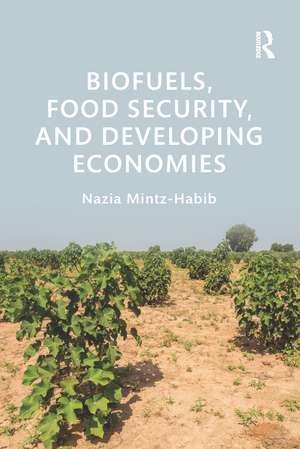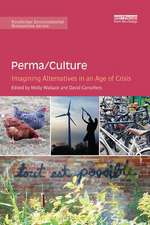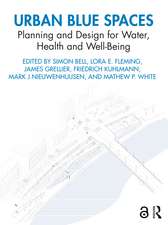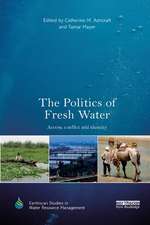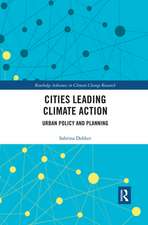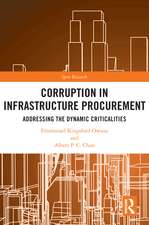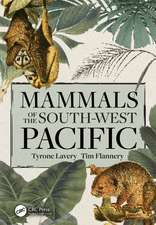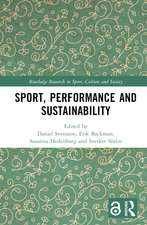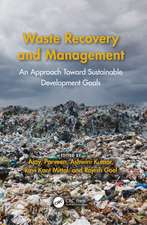Biofuels, Food Security, and Developing Economies: Routledge Studies in Bioenergy
Autor Nazia Mintz-Habiben Limba Engleză Paperback – 10 apr 2018
The author analyses the extent to which biofuels feedstocks fit within the national food security strategy, agro-export orientation, and rural development plans and policies of developing economies. Two case studies, from Tanzania in East Africa and Borneo in Malaysia, are considered in detail, using the non-edible crop of jatropha as an example of how compromises can be reached to balance food and energy goals as well as export markets. The author develops a novel integrated approach, the Institutional Feasibility Study, as the basis of her analysis.
She addresses key issues such as: how do global initiatives for green growth, energy security and sustainable development incorporate biofuels industry development? Does global biofuels trade present meaningful foreign and local investment opportunities for developing countries? To what extent does biofuels feedstock production help with poverty reduction and agricultural sector modernization? What role do the EU and the US commitments to biofuels blending targets play in the rapid industry development in developing countries? How does the biofuels industry fit within existing formal and informal institutional frameworks? Who are the winners and losers in the biofuels global value chain?
| Toate formatele și edițiile | Preț | Express |
|---|---|---|
| Paperback (1) | 416.22 lei 6-8 săpt. | |
| Taylor & Francis – 10 apr 2018 | 416.22 lei 6-8 săpt. | |
| Hardback (1) | 1038.24 lei 6-8 săpt. | |
| Taylor & Francis – 7 ian 2016 | 1038.24 lei 6-8 săpt. |
Preț: 416.22 lei
Nou
Puncte Express: 624
Preț estimativ în valută:
79.64€ • 83.36$ • 66.29£
79.64€ • 83.36$ • 66.29£
Carte tipărită la comandă
Livrare economică 29 martie-12 aprilie
Preluare comenzi: 021 569.72.76
Specificații
ISBN-13: 9781138588912
ISBN-10: 1138588911
Pagini: 240
Ilustrații: 67 Illustrations, black and white
Dimensiuni: 156 x 234 x 13 mm
Greutate: 0.45 kg
Ediția:1
Editura: Taylor & Francis
Colecția Routledge
Seria Routledge Studies in Bioenergy
Locul publicării:Oxford, United Kingdom
ISBN-10: 1138588911
Pagini: 240
Ilustrații: 67 Illustrations, black and white
Dimensiuni: 156 x 234 x 13 mm
Greutate: 0.45 kg
Ediția:1
Editura: Taylor & Francis
Colecția Routledge
Seria Routledge Studies in Bioenergy
Locul publicării:Oxford, United Kingdom
Public țintă
PostgraduateCuprins
1. Introduction 2. An Innovative Framework 3. Biofuels, Biodiesel and Regulations 4. The Tanzanian Biofuels Experience 5. The Malaysian Biofuels Experience 6. Looking Forward while Leaning Backward 7. Conclusion
Notă biografică
Nazia Mintz-Habib is Lecturer in Public Policy at the University of Cambridge, UK. She was a Post-Doctoral Research Fellow in the Kennedy School of Government, Harvard University, USA, and also a Research Fellow in Development Studies at the University of Cambridge, UK.
Recenzii
"Nazia Mintz-Habib's fascinating study explores how, and in what circumstances, biofuel crops contribute to either perpetuating or alleviating poverty and food insecurity by considering the complex interactions among agricultural commodity and energy markets, climate change mitigation finance and farming communities." – Jomo Kwame Sundaram, Coordinator for Economic and Social Development, Food and Agriculture Organization of the United Nations.
"This book provides a highly original application of the Institutional Feasibility framework to the analysis of developing countries' role within global value chains in primary commodities. It makes a valuable contribution to public policy and development studies." – Peter Nolan, Chong Hua Professor and Director, Centre of Development Studies, University of Cambridge, UK.
"This book provides a highly original application of the Institutional Feasibility framework to the analysis of developing countries' role within global value chains in primary commodities. It makes a valuable contribution to public policy and development studies." – Peter Nolan, Chong Hua Professor and Director, Centre of Development Studies, University of Cambridge, UK.
Descriere
This book investigates the extent to which biofuels feedstocks fit within the national food security strategy, agro-export orientation and rural development plans and policies of developing economies.
